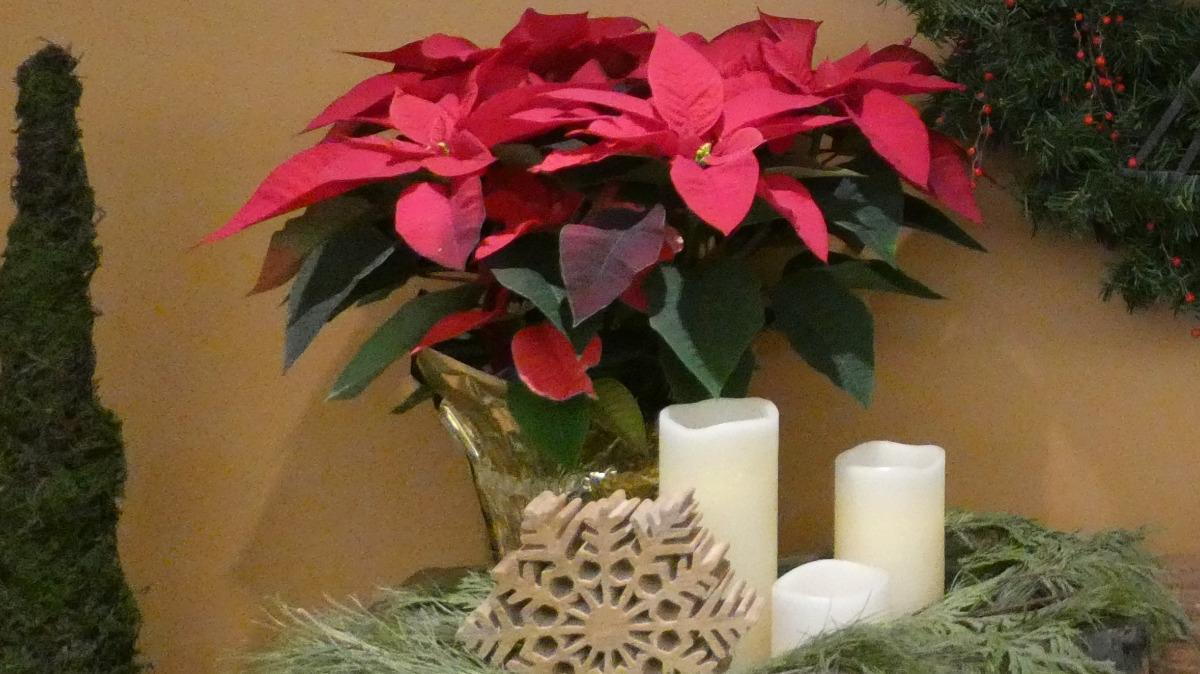Poisonous Plants: Christmas Edition

- posted: Dec. 11, 2022
Poisonous Plants: Christmas Edition
Festive greenery is abundant in December as many of us use real plants to decorate for Christmas. While most are safe, some can be toxic. Cats are the primary culprits, but some dogs will sample plants as well. Which plants pose a potential problem for our furry friends?
Mistletoe and Holly—While use of real mistletoe in the homes is uncommon these days, if you do have a sprig under which to steal kisses, make sure pets do not have access to it. All parts of the plant are toxic and can cause vomiting and diarrhea, drop in blood pressure and odd behavior in some pets due to possible hallucinations. Holly berries and leaves contain toxins known as saponins and ingestion can cause drooling, vomiting, diarrhea, loss of appetite, and decreased activity. The pointed leaves may also cause irritation in the mouth or GI tract.
Pine/Fir/Spruce—Luckily, toxicity is relatively low for live Christmas trees. However, oils produced by the needles may cause irritation to a pet's mouth and stomach and ingestion of tree needles may lead to obstruction and punctures of the gastrointestinal tract. The water used to keep your tree looking green may also pose a hazard as it can harbor bacteria or mold or be toxic if fertilizer has been added. Keep the tree water covered and/or block pets from accessing the water basin.
Poinsettias—These seasonal beauties have long had a bad reputation as being toxic to pets. Turns out, while they can cause GI upset in the form of vomiting and diarrhea, pets would need to eat a large amount to cause symptoms, and they aren’t deadly. Of course, you still shouldn’t let pets eat poinsettias so keep them out of reach of cats and dogs.
Christmas Cactus—the Christmas cactus is not toxic to pets; however, the spines may cause injury or irritation to the skin and mouth and ingestion could cause vomiting in some animals.
Amaryllis (a.k.a. Belladonna, St. Joseph Lily) and Paperwhites (a.k.a. Narcissus)—these winter-blooming plants are related to daffodils and contain a toxin known as lycorine which causes vomiting. Other symptoms may include abdominal pain, diarrhea, drooling and lethargy and tremors. The bulbs are more highly toxic than the stems and flowers. In rare cases, heart or kidney damage may develop.
If you have pets and choose to decorate your home for the holidays with seasonal plants, be aware of the potential dangers and keep plants out of reach of cats and dogs. Be aware, these plants may also be toxic to horses or pocket pets. Don’t feed or allow any animals access to holly, poinsettias or amaryllis and paperwhites. Keep pets safe this holiday season!
This blog brought to you by the Patton Veterinary Hospital serving Red Lion, York and the surrounding communities.
https://www.petmd.com/dog/seasonal/evr_multi_dangerous_winter_holiday_plants
Location
Patton Veterinary Hospital
425 E Broadway
Red Lion, PA 17356
